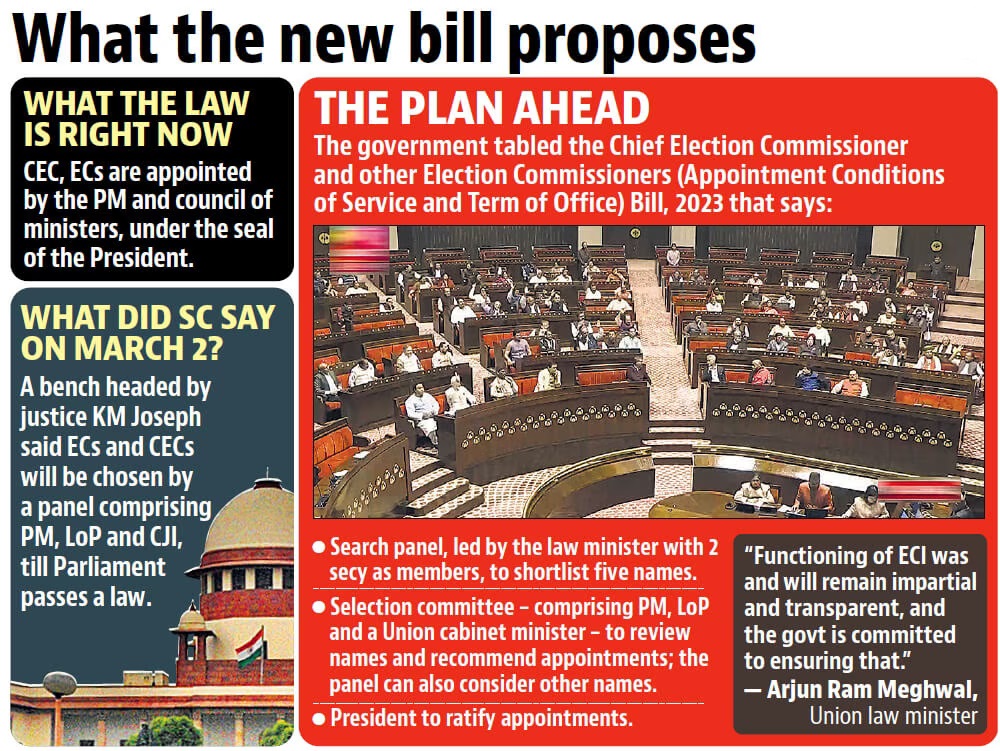The administration made some changes to the measure after it was first submitted in August, ostensibly in response to criticism, but significant flaws remained. For example, it has reinstated, versus the previous proposal to place them on par with the Cabinet Secretary, the protocol of the CEC and the ECs comparable to that of Supreme Court justices. However, the major flaw still stands: the CEC and ECs will only be nominated by the current administration, making them political appointments.
The government asserted that the Supreme Court’s instructions were followed in drafting the measure. That is merely a partial truth that violates the letter and the spirit of the court’s orders. The appointment process for the CEC was not outlined in the 1991 legislation or the Constitution, which provided an opening that previous regimes might have taken advantage of.

Source: Civils Daily
The Chief Justice of India (CJI), the Leader of the Opposition in the Lok Sabha, and the Prime Minister would have chosen the candidates under the procedure proposed by the Supreme Court in March of this year. This would have increased voter trust in the commission’s credibility and the appointments’ legitimacy. The Prime Minister, a Union cabinet minister, and the head of the biggest opposition party in the Lok Sabha will make up the selection committee, which the administration has excluded the CJI from.
An additional modification provides the CEC and ECs with legal protection, shielding them from judicial action for any conduct, no matter how improper or illegal. Even though the opposition is represented on the committee, the government will always have the last say over who gets appointed. The opposition leader will just play the role of an eye washer, a formality.
Source: India Today
The Election Commission will report to the government, which has the authority to choose anyone it pleases and will undoubtedly use its power to further the interests of the ruling party. The impartiality and independence of the Election Commission are essential for free and fair elections, which are the foundation of a strong democracy. Including the CJI in the process would be one method to improve the legitimacy of the commission appointments.
Another approach would be to include a clause in the current bill requiring a unanimous selection process in order to ensure that the commission chosen is approved by the opposition as well. The objective of an impartial and apolitical Election Commission is not implemented by the measure as it stands. It is actually a bill to legitimise the appointment of fictitious Election Commissions.
What do you think about this? Comment below.

